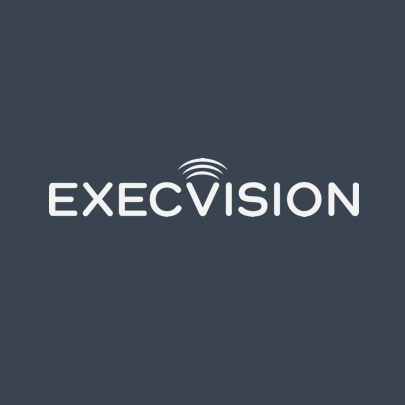Move Over Traditional Sales Training; Make Way for Specialized Sales Systems
(This post features content originally written by Matt McDarby and Dan Smaida, published in ScaleX: Multi-Channel Sales Acceleration, by Chad Burmeister, January 2018.)
Over the last several years, my business partner and I have had entirely too many conversations with buyers of sales training in which we hear the complaint, “Sales training failed to stick again. The traditional approach is not working.” When we ask those buyers about their process for evaluating sales training options and potential providers, the process sounds roughly the same as it did eight years ago when I left the traditional sales training industry. Their experience tends to sound something like the following:
“We knew it was time to train our sales force. We shared our sales challenges with (traditional sales training) company X, and their team did a great job of demonstrating their content and connecting it to the kinds of problems we face. They have experience in our industry, as well. They prescribed their (proprietary, trademarked) training program for us, and we hired them.
We then took a month or two to customize their model to our environment. It wasn’t a perfect fit, but we were able to add enough of our language and internal processes to be satisfied. The training went well, and many of our salespeople really enjoyed the experience. For some reason, though, our people are struggling to implement the customized version of the program we bought. It’s been a few months, and we are concerned the program isn’t going to make the impact we hoped it would.”
If you’ve been involved in buying or launching a sales training program, then the above may sound painfully familiar to you. You may have even experienced this more than once. The question is, “Why do companies and the smart people who run them keep making the same mistake over and over again?”
If insanity is doing the same thing over and over again while expecting a different result, then welcome to the crazy, crazy world of traditional sales training.
When the buyers of any product or service say, “This ____ isn’t working,” sellers need to pay attention. Think of sellers in the PC industry in the early 2000s that failed to recognize that buyers wanted a different buying experience. Customers were aware they could buy more efficiently, pay less, and get virtually the same if not better results by working with Dell instead of IBM, HP, and Compaq. The PC sales industry took too long to listen and react, despite e-commerce and supply-chain efficiency tools and processes being readily available. PC giants were forced to consolidate, merge, or sell assets simply to avoid going out of business. Multi-billion dollar PC resellers went out of business literally overnight. I worked for one of them, and I remember vividly what it was like when all 5,000+ employees including me were laid off with an email and a recorded message in June 2000.
It all happened because suppliers didn’t listen and react quickly enough, despite all signs pointing to a need for transformation. The sales training industry is headed for a similar fall. We are already seeing vendor consolidation, which is perhaps an early sign of capitulation by traditional vendors of sales training.
Traditional sales training providers do not appear ready to change their business models. Why?
The answer is simple. The pull of licensing revenue is too strong. To write sales training content (e.g. SPIN Selling, Challenger Selling, Sandler method, et cetera) once and sell it many times is an incredibly profitable and sustainable business. Build a decent base of research, trademark the language, and make it commercially available. Market the heck out of it.
Even the best, commercially available sales training content is just guesswork once it meets your environment. No matter the research base, if sales training content isn’t based on empirical data from your sellers, it’s just guessing at what will work for your company now. Therefore, rented sales training (meaning borrowed from someone else’s research base for a fee), even when customized, has a very low adoption rate and a very high turnover rate.
If your sales people complain that the sales training content you rented is either too complicated or not a great fit for your environment, then please listen to them. They’re not stupid, and they’re not being stubborn or negative. They’re simply trying to tell you what you probably already know… renting someone else’s sales methodology and expecting it to work in your environment is folly. Traditional sales training is not getting the job done. Enter the specialized sales system.
The Current (R)Evolution In Sales Training
We don’t need to stare into a crystal ball or read tea leaves to see what the future holds for the sales training industry. We are talking about right now. The technology to build and operate your own sales development system already exists. The processes and diagnostics necessary to tailor-make an effective system already exist. Your sellers’ appetite for more credible, relevant, personalized, effective sales training certainly exists. Whether you are in a sales leadership or learning and development or sales ops role, you can drive the transformation from traditional, rented sales training to the modern sales development system.
If you are intrigued but wondering how to get started, following are some simple recommendations:
- Get smart on AI and personalized learning. These two technologies will have the most impact on how we develop salespeople going forward. You don’t have to be an expert, just educated on what is available and how these technologies are already being leveraged in the field.
- Get conversant in systems thinking, agile development, and lean manufacturing. You will be amazed at the value these disciplines bring whether you are a sales leader or a sales development professional. You can learn the process of maximizing throughput (skill gain) while minimizing inventory and operating expense.
- Foster pockets of innovation. Encourage your bleeding-edge salespeople and sales managers to incorporate new tools. Sponsor skunkworks projects, and encourage communities of practice. Get your most progressive minds ideating on what is possible in this new environment.
- Hire a good mechanic. There is no substitute for an experienced practitioner when it comes to avoiding re-creating the wheel. Having expert guidance as you incorporate new processes, discipline, and technology is an important shortcut to a successful system.
Building your own sales development system will look a lot like small-batch, artisanal brewing, repeatedly and quickly refining and adjusting the recipe to get to the desired outcome. We call these systems specialized, and this is exactly what sales training should look like.
Matt McDarby is Managing Director of Specialized Sales Systems and the author of The Cadence of Excellence: Key Habits of Effective Sales Managers. Specialized Sales Systems provide the process, diagnostics, and expertise you need to build and operate your own sales development system – without the inefficiency and cost of traditional sales training.

